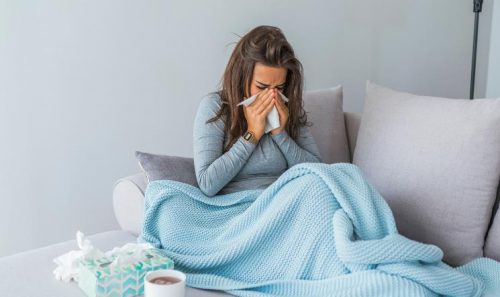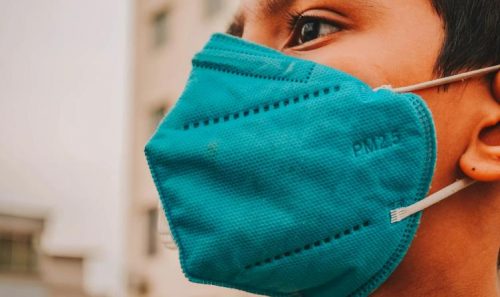The flu is a serious viral infection that can cause severe illness, hospitalization, and even death. Every year, millions of people everywhere suffer from the flu, and the virus can be particularly dangerous for young children, elderly people, and those with weakened immune systems. Although there is no true guaranteed way to prevent the flu, there are some simple steps that you can take to help reduce your risk of contracting the virus. Let’s take a look!
7 tips and tricks to avoid the flu this fall
1. Get your flu shot
Yearly flu shots are important for everyone, but they are especially critical for people with chronic health conditions and for those who are 65 years of age and older. This is because these groups are at higher risk for complications from the flu, including pneumonia, bronchitis, and even death.
 The flu shot helps to protect against the most common strains of the virus and can lessen the severity of your flu symptoms if you happen to get sick. In addition, getting a flu shot can help to prevent the spread of the virus to others, including vulnerable populations. For these reasons and more, it is certainly essential to get a flu shot every year.
The flu shot helps to protect against the most common strains of the virus and can lessen the severity of your flu symptoms if you happen to get sick. In addition, getting a flu shot can help to prevent the spread of the virus to others, including vulnerable populations. For these reasons and more, it is certainly essential to get a flu shot every year.
2. Practice good hygiene
Maintaining good hygiene is essential for preventing the spread of illness. In many cases, diseases are spread through contact with contaminated surfaces or by sharing personal items. For example, cold and flu viruses can survive on door handles and other hard surfaces for several hours.
Good, useful hygiene habits, like washing your hands regularly and avoiding touching your face, can help to reduce the risk of becoming sick. Additionally, it is vital to practice good hygiene when preparing food. This means washing your hands often, keeping food preparation areas clean, and cooking food to the proper temperature.
3. Try antiviral drugs for the flu
Antiviral drugs are an important tool in the fight against sickness. By targeting viruses and stopping them from replicating, antiviral drugs can help to prevent the spread of infection and save lives. In recent years, antivirals have been used to great effect against a range of diseases, from influenza to HIV.
 With the ongoing threat of new pandemics, antiviral drugs will continue to play a vital role in protecting public health. While antivirals are not a cure-all, they can be an important part of preventing and treating viral illnesses. When used correctly, they can help to save lives and protect communities from the devastating effects of disease.
With the ongoing threat of new pandemics, antiviral drugs will continue to play a vital role in protecting public health. While antivirals are not a cure-all, they can be an important part of preventing and treating viral illnesses. When used correctly, they can help to save lives and protect communities from the devastating effects of disease.
4. Boost your immune system
When you want to stay healthy, boosting your immune system is a great option. There are a few different ways you can do this, but one of the easiest and most effective is to take dietary supplements in the form of gummy vitamins like vitamin C. For instance, sambucus elderberry gummies (with elderberry extract) are packed with antioxidants that can help to fight off infection.
Additionally, immune support gummies often include Vitamins C and D, which are both essential for a healthy immune system. If you’re pregnant, prenatal gummies with folic acid are also a smart option. These prenatal vitamins help to ensure that you and your baby are getting the nutrients you need for a healthy pregnancy. Many gummies for immune health are gluten-free and are made with natural flavors.
5. Quit smoking
Everyone knows full well that smoking is bad for their physical health. It can cause a variety of serious illnesses, including lung cancer, emphysema, and heart disease. In fact, smoking is actually the leading cause of preventable death in the United States. Quitting smoking is the best things you can do for your health and safety.
 `It greatly reduces your risk of developing cancer and other diseases, and it can also help improve your overall health. For example, quitting smoking can help you breathe easier, sleep better, and have more energy. It can also reduce your risk of developing wrinkles and other signs of aging. So if you are looking to improve health of yours, quitting smoking is a great thing to start.
`It greatly reduces your risk of developing cancer and other diseases, and it can also help improve your overall health. For example, quitting smoking can help you breathe easier, sleep better, and have more energy. It can also reduce your risk of developing wrinkles and other signs of aging. So if you are looking to improve health of yours, quitting smoking is a great thing to start.
6. Avoid touching your face
Whenever you touch something, you leave behind a layer of skin cells. These cells can contain viruses and bacteria, which can then be transferred to your face when you touch it. This is one of the primary ways that illness is spread. By avoiding contact with your face, you can help to reduce the risk of becoming sick.
Additionally, touching your face can also irritate the delicate skin in this area, leading to breakouts or other skin problems. For these reasons, it is ideal to keep your hands away from your face as much as possible. Of course, this can be pretty difficult to do, especially if you have a habit of touching your face without thinking about it. However, with a little effort, it is certainly possible to break this habit and keep yourself healthy in the process.
7. Cover your nose and mouth
By keeping your hands away from your face and using a barrier to protect your nose and mouth, you can help stop the spread of germs and keep yourself healthy. When you sneeze or cough, for example, droplets from your nose and mouth can contain viruses that cause colds, flu, and other respiratory illnesses.
 If those droplets land on someone else, they can become sick as well. When you wear a mask or other face covering, you help to protect others from those droplets. And when everyone around you is wearing a face covering, you are less likely to come into contact with droplets that could make you sick. So next time you head out in public, be sure to take a few minutes to cover your nose and mouth. It could make a significant difference in staying healthy.
If those droplets land on someone else, they can become sick as well. When you wear a mask or other face covering, you help to protect others from those droplets. And when everyone around you is wearing a face covering, you are less likely to come into contact with droplets that could make you sick. So next time you head out in public, be sure to take a few minutes to cover your nose and mouth. It could make a significant difference in staying healthy.
The Bottom Line
There are a number of things you can do to stay healthy and avoid getting sick. Some of the most important include boosting your immune system with a dietary supplement, quitting smoking, avoiding contact with your face, and covering your nose and mouth when you’re in public to have sick free lifestyle. Taking these steps can help you stay healthy and protect yourself and others from illness.





































